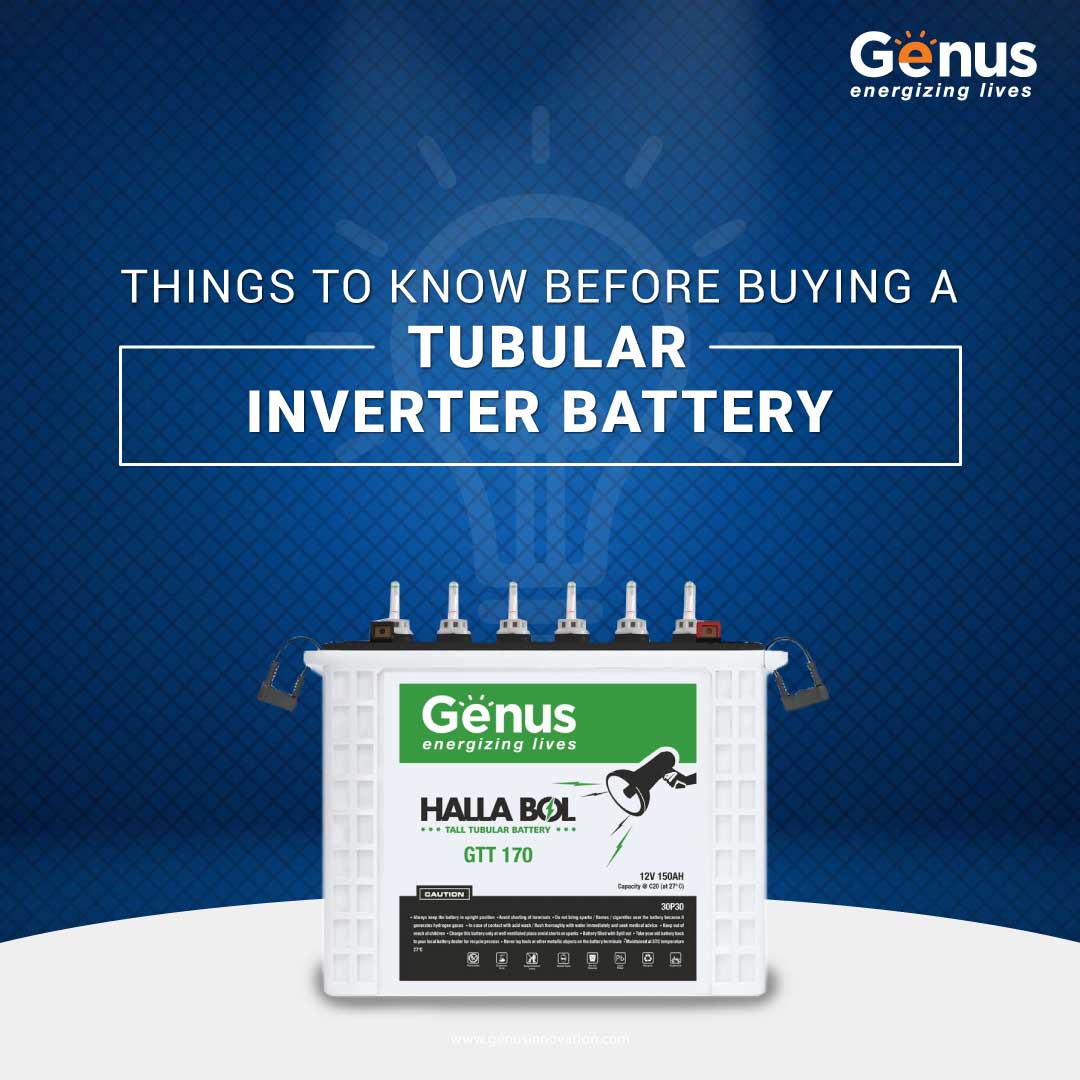
The battery is the very foundation upon which an inverter relies, playing a crucial role in augmenting its performance and longevity. Selecting the appropriate tubular inverter battery for your home is vital for ensuring your inverter’s optimal performance and longevity.
In the quest to enhance the performance of an existing inverter or to procure a new and advanced one, the selection of a superior battery is imperative for achieving elevated efficiency and longevity. We will discuss various aspects, including the capacity and efficiency of a tubular inverter battery in its operational course, and provide you with tips to take care of your inverter battery.

The Capacity of Tubular Inverter Battery
The required power output and the desired backup time determine the size and capacity of a solar tubular battery. The measurement used to evaluate the power of a battery is Ampere Hours (AH). It is important to note that the capacity of the battery should be equal to that of the inverter in terms of voltage and capacity.
Power cuts and voltage fluctuations can harm appliances and devices connected to the main power supply. It is crucial to remember that each inverter has a different charge rating, and thus, the battery must be selected accordingly.
The market offers a variety of inverter batteries with capacities ranging from 100 AH to 230 AH. Among them, our 230AH tubular batteries are particularly well-suited for residential and commercial use, with a high performance and durable structure. Moreover, it comes equipped with enhanced charging capabilities, making it an excellent choice for those searching for a high-performing and long-lasting inverter battery.
The efficiency of Tubular Inverter Battery
Through regular maintenance and servicing, a tubular inverter battery ensures optimal functioning of the power backup system while also safeguarding your abode or commercial space.
Among the various types of batteries, tubular batteries are particularly noteworthy for their superior performance. Due to the larger surface area of their positive plates, tubular batteries have a 20% greater electrical capacity than other batteries of the same size and weight.
Additionally, tubular batteries also have a lower rate of positive plate shedding, resulting in a service life that is 30% longer than that of flat plate batteries. Therefore, when choosing any inverter with battery for home, tubular inverter battery suits best for residential and commercial use due to their exceptional performance and efficiency.
How to Take Care of Tubular Inverter Batteries?
-
Find A Ventilated Area For Inverter Installation
Installing an inverter requires careful consideration of factors such as proper ventilation and safe placement to avoid heat buildup and potential hazards. Additionally, to ensure safety, avoid placing the inverter near flammable materials and provide ample space around the inverter system while avoiding exposure to moisture or water.
-
Check Acid Level Every Two Months
To ensure the proper functioning of your tubular inverter battery, check the acid level in all cells using the float indicator. Add distilled water to reach the recommended limit and avoid overfilling, which can damage the battery. Check the color of the acid by opening the vent plugs, it should be clear; if not, it indicates contamination and may require further attention.
-
Run Maintenance Check When Fully Charged
To perform a maintenance check on the inverter batteries, it is important to charge them first fully. It’s recommended to leave the battery to charge for 10-15 hours using a suitable inverter or external charger before conducting the check. Also, to ensure safety, remove the inverter from the front panel and wall socket before performing the examination.
-
Clean The Battery Terminal Area To Avoid Corrosion
Corrosion and rust can affect the performance of a solar tubular battery. If your battery terminals are corroded, pour hot water and baking soda solution on them or use a toothbrush to clean them. To prevent further decay, apply petroleum jelly or Vaseline to the battery terminals, nuts, and bolts once the terminals are corrosion-free.
Conclusion
Power outages cause significant inconvenience and disruption to households and businesses in the course of their daily operations. Inverters serve not only as a backup power source for your appliances and solar products for home but also ensure continuity in operations.
Genus Innovation presents a range of robust and durable inverter batteries depending on the varied needs of customers. With Genus’ wide range of inverter batteries, you can choose the most efficient and reliable inverter battery without breaking the bank. For more information on tubular inverter batteries, get in touch with us right away!
